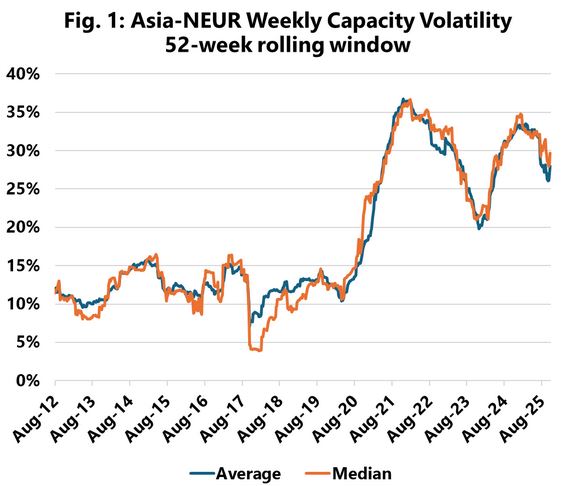 Sea-Intelligence reports a sharp increase in the volatility of weekly vessel capacity on major East/West liner services since the pandemic.
Sea-Intelligence reports a sharp increase in the volatility of weekly vessel capacity on major East/West liner services since the pandemic.
The analysis shows that this structural shift has led to significantly more unstable and unpredictable capacity levels, particularly on Asia-Europe trade lanes, contributing to persistent port congestion.
Sea-Intelligence measured this volatility using the standard deviation in vessel capacity over a 52-week rolling window to remove seasonal effects.
The data reveals that on the Asia-North Europe trade lane, the average volatility in weekly capacity rose from a stable 12.3% in the 2011–2019 period to 29.6% in 2021–2025.
Similar trends were observed on the Asia-Mediterranean trade.
On the Transpacific trades, including Asia-North America West Coast and Asia-North America East Coast, the increase in capacity volatility was less severe but still notable, rising by approximately 50% from around 20% to 30%.
Sea-Intelligence states that while liner services are ideally expected to offer consistent weekly capacity, practical factors such as vessel size variation, blank sailings, and scheduling delays contribute to fluctuation. These more "lumpy" cargo flows pose operational challenges for ports and terminals, which are structured to manage stable traffic.
The report identifies the rise in Asia-Europe capacity volatility as a major factor underlying current port congestion issues in Europe.
Sea-Intelligence ApS Sea-Intelligence ApS is a privately held Danish maritime data analytics and consulting firm headquartered in Copenhagen, Denmark. The company specializes in providing independent research, market intelligence, and performance benchmarking for the global container shipping industry.



